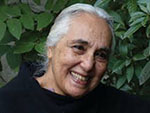Declaring India to be an independent nation in 1947 encapsulated fundamental historical changes. India was no longer a collection of kingdoms as it had been before it was colonized, nor were the people of India any longer subjects of the British crown as under colonial rule. We were now a sovereign democratic state whose population consisted of free and autonomous citizens of a nation.
Secular nationalism had resulted in the bringing together of Indians in the demand for an independent nation, a momentous change in our history. We wanted a democratic, secular nation-state. This was embedded in the Constitution that was agreed upon by all, and the acceptance of which we remember, celebrate and reiterate on Republic Day. The question today is whether the structure envisaged by the Constitution has been put into practice, as foundational to a nation. The Constitution is what every government swears to uphold but we have to ask what parts of it are being upheld. This is a crucial question because the Constitution—if respected—can be a substantial protection for us from attempts to deny the democratic and secular structure of our state and society.
However, two nation-states were created in accordance with the colonial theory of India consisted of two nations—the Hindu and the Muslim. Pakistan was founded on a religion-based Islamic nationalism essential to founding a Muslim majority state. This was the culmination of the process of Islamic religious nationalism. It had its counterpart in the Hindu aspiration of establishing a Hindu equivalent as the Hindu Rashtra. In this pattern the identity of the people who form the state comes from their religion. This idea is rooted in and derives from the colonial two-nation theory. It is far from being an indigenous idea and it negates the history of India. It indicates that we are still clinging to the identity that was imposed on us by colonial explanations of our history and culture. Do we not have the courage to think independently about our past?
Many questions were asked at the time of our Independence. I recall lengthy discussions on the kind of state and society that we wanted as independent citizens. A major issue was that when claiming to be a nation of Indians, how were we defining being Indian? The ending of colonialism in itself required a different identity, and one which in its inclusiveness holds all Indians together.
Historically, such an identity does not come together at a single moment in time. It evolves and accommodates the essence of many past identities. National identities are moulded through time, drawing on the evolution of the society, from what it takes from neighbouring peoples, and even more significantly, from those who migrated and settled amidst the earlier society. Identities therefore changed in historical time as also did the boundaries of the territories they were associated with. The national movement that brought us our independence from colonial rule, was clearly defined. It was a secular, democratic nationalism that was inclusive of all peoples, and all were of equal status, and this was the basis on which we defined our identity.

